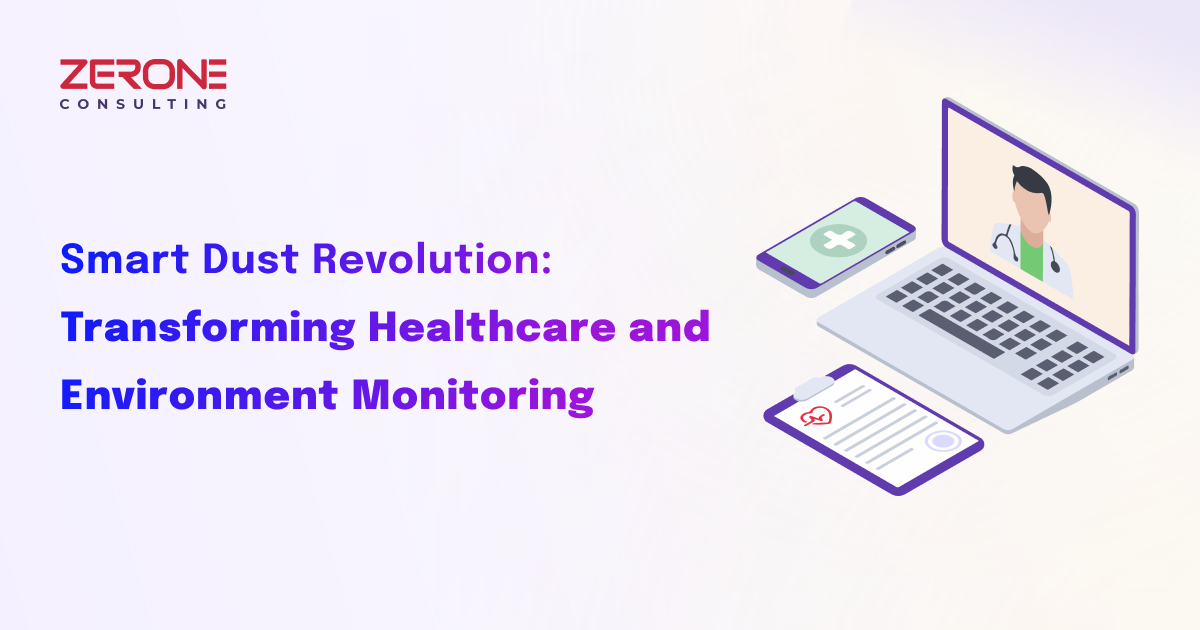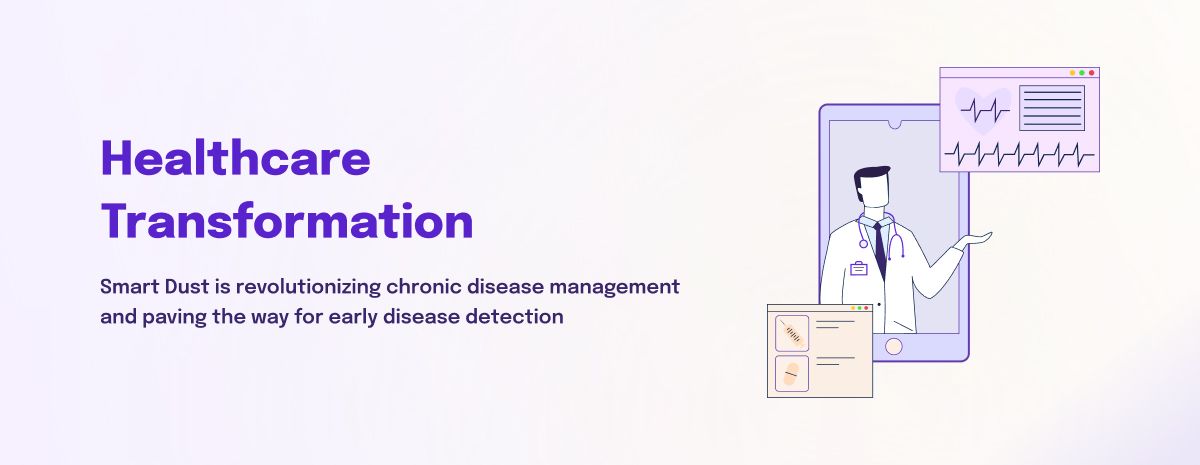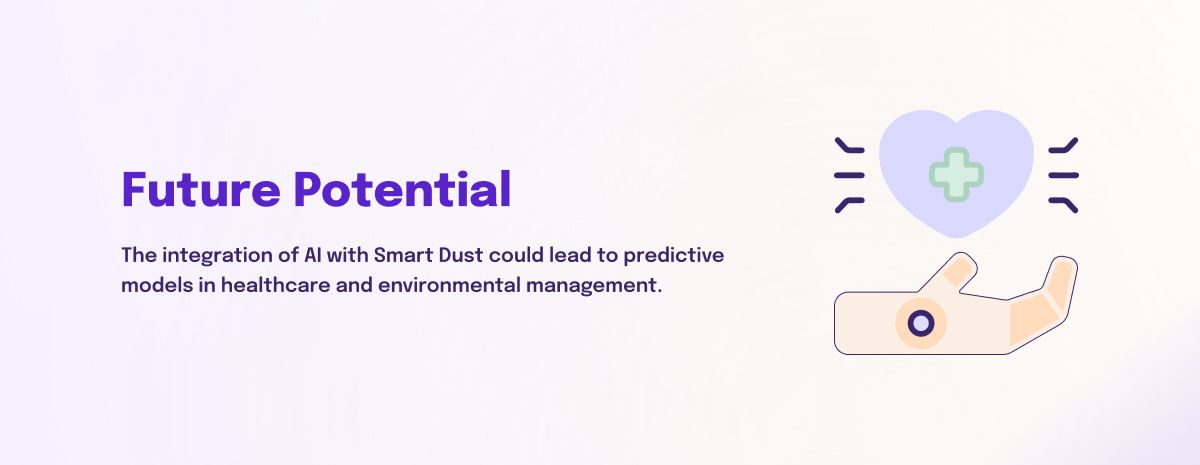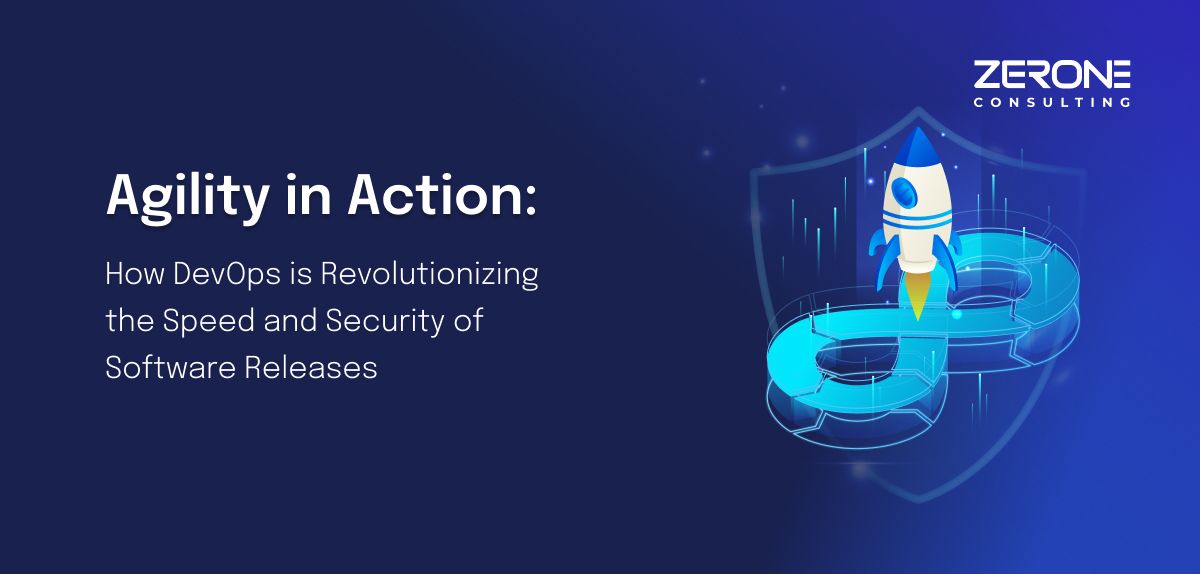Smart Dust Revolution: Transforming Healthcare and Environment Monitoring
In the realm of technological innovation, a microscopic marvel is making colossal waves - Smart Dust. This narrative takes us into a world where these tiny sensors, no larger than a grain of sand, are revolutionizing both healthcare monitoring and environmental surveillance.

Chapter 1: A Speck of Change in Healthcare
Imagine a future where chronic diseases are managed not in hospitals, but from the comfort of one's home, with a cloud of Smart Dust particles seamlessly monitoring vital signs and sending alerts at the first sign of trouble. This isn't science fiction; it's the brink of our new reality.
In 2023, a groundbreaking study by MIT researchers showcased how Smart Dust could monitor neural activity in the brain. Fast forward to today, where Smart Dust is being tested for its efficacy in continuous, real-time monitoring of blood glucose levels in diabetic patients, potentially replacing invasive blood tests. This leap forward promises not just convenience but a transformative approach to chronic disease management.

Chapter 2: Guardians of the Environment
Beyond healthcare, Smart Dust particles are being deployed as guardians of our environment. With climate change escalating, the need for comprehensive environmental data has never been more critical. Smart Dust offers a solution - an army of sensors monitoring everything from soil moisture levels to air pollution in real-time.
In California, Smart Dust is being piloted to monitor vineyard soil conditions, enabling precision agriculture that conserves water and improves crop yield. On a larger scale, Smart Dust networks deployed across the Arctic are providing crucial data on melting ice patterns, offering insights into global warming trends.
Future Insights
The potential of Smart Dust extends into realms yet to be fully realized. In healthcare, the next frontier is early disease detection. Imagine a scenario where Smart Dust in your home detects markers of a disease like Alzheimer's years before clinical symptoms appear, allowing for early intervention.
In environmental monitoring, Smart Dust could play a pivotal role in smart cities, providing data that drives energy efficiency, pollution control, and disaster management. The integration of AI with Smart Dust could lead to predictive models of environmental change, ushering in an era of proactive, rather than reactive, environmental stewardship.

Challenges and Ethical Considerations
However, with great power comes great responsibility. The widespread adoption of Smart Dust raises concerns about privacy and data security. The very feature that makes Smart Dust appealing - its inconspicuous nature - also poses a risk of undetected surveillance. Addressing these ethical concerns is paramount as we navigate this new technological landscape.
Conclusion
The Smart Dust revolution is more than just an advancement in technology; it's a paradigm shift in how we approach healthcare and environmental monitoring. As professionals in these fields, we stand at the forefront of this exciting era, tasked with the responsibility of guiding its integration into society ethically and effectively.
As we continue to explore the limitless possibilities of Smart Dust, one thing is clear: the smallest particles may just hold the key to solving some of our biggest challenges.
We can help!
Why Scrum Fits Like A Glove
#Customapplicationdevelopment
Mvps - A Silver Bullet In Software Development
#Customapplicationdevelopment



